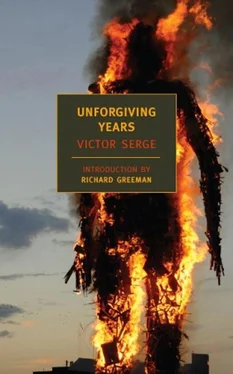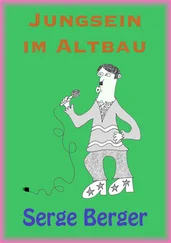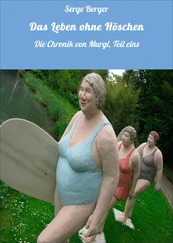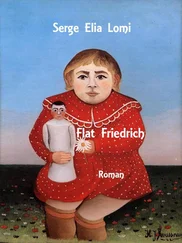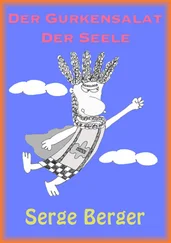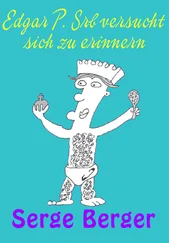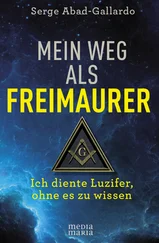The horses trotted down a narrow lane of emerald green. It could have been the entrance to a labyrinth of vegetation. On both sides tall, rigid cacti raised airy walls traversed by light and breeze, bristling on every side with nasty spines… Planted this way, these órgano cacti were used to fence-in yards. The stony soil was red as rust. There was to be no labyrinth; the countryside opened out, or rather the desert, surrounded in the distance by a broken line of glinting arid peaks… Makeshift crosses leaned here and there by the side of the track. Don Gamelindo remarked, “Our ‘little dead.’ All in the prime of youth. Quick little bullet, quick little death. Youth must have its day, verdad ?”
The graves took up very little space under the brilliance of the morning sun. To their left shone the Lagoon, like a sheet of quicksilver.
“It’s not like this in your country, Señorita?” inquired Don Gamelindo, easy and heavy in the saddle, barely remembering back to when he was young himself, lying in wait at sundown behind these rocks to settle family scores with the Menéndezes… He was a better shot than any of them, shooting only when he was sober, whereas they would drink before an ambush, boasting that mezcal sharpened their eyesight. Big mistake. “May God forgive them!” The tombs of the three Menéndezes — Felipe, Blas, and Tranquilino — had long since disappeared, and in the mind of their now-respectable assassin the memory of those treacherous Sunday evening gunfights had become depersonalized into a tale of manly murder among others… Folks nowadays are going soft, there are too many laws, the slightest brawl makes headline news because reporters — ¡Hijos de puta! — need to earn their tortillas and greasy refried beans… Don Gamelindo jogged along, lively yet unhappy to be growing old in an aging world… In some faraway land, for a woman like this — and young! — a few skulls must lie buried by the side of the road… This thought made him swivel gracefully in the saddle toward the woman riding behind him.
“In my country,” Daria answered, “there was the war… And if, in my country, we were to plant little crosses by the wayside for every murder victim, they would spread over the immensity of the continent to the horizons, to the pole…” Even at this image, Daria remained smiling, because her joy — trotting through these spaces of pure barrenness, pure sunlight — was stronger than all else, was pure.
Don Gamelindo encouraged his mount with a soft cluck of the tongue.
“I heard about that,” he said. “The war between the Jews and the Nazis. War is impious. God preserve us from wars and revolutions, eh, Señorita?”
By luck, Daria’s horse made a bound forward, so she didn’t have to answer him.
* * *
The sierra was becoming more and more torrid; the lake gleamed like molten metal in a crucible. They rode through the fiery monotony without talking, without thinking, without dreaming, with no sensation other than the furnace above them. The plantation came into view, an oasis of green. They entered the enclosure, a wall of rough stones. They saw a man in white standing under a cluster of big, smooth-barked trees nearly bare of leaves but sprouting white flowers. Hands on hips, he was overseeing the work of two half-naked Indians as they shoveled earth from a trench. From behind Daria’s eyes floated the memory of an illustration from a childhood book or perhaps a propaganda manual: “The Planter and His Slaves.” The planter turned toward them. He raised a hand in greeting. A floppy palm-fiber hat obscured much of his face. Not until they were three steps apart did Sacha and Daria recognize each other, and the look they exchanged was so fraught with apprehension that they had to feign joy at seeing each other, force themselves to smile while shaking hands as though they had parted the day before. The presence of Don Gamelindo, far from being an encumbrance, made it easier for both of them to put the right face on things.
Bruno Battisti’s first thoughts were: Why is she here? To kill me? Unlikely after all these years. I sank into obscurity, I kept quiet. To escape herself? Then she’s probably being followed. Women are never rational enough about covering their tracks. It’s her they’ll be after, but they’ll throw us in for free. Nothing could be easier, in this place… Accustomed to ordinary, everyday dangers, but long out of the habit of those mysteriously organized threats that close in out of nowhere to ensnare you, he shuddered. “Is it really you?” he said to Daria. “What a happy surprise…” “Sacha, I’ve run away,” Daria whispered, aware of his fears, yet ecstatic — as if a cup of joy, downed in one draft, was going to her head. “Don’t look at me like that, there’s nothing to be afraid of…” (Not that assurances made any difference!) His gray eyes brightened the way they used to. He shrugged his shoulders; older, stronger, sunburned.
“That’s magnificent, my friend. Here you’ll be safe. Life. The desert. See how beautiful it is.”
From the height of his velvet-and-silver-decorated saddle, Don Gamelindo, framed in sunlight and by looming green shrubbery, smiled down at them like a grinning Chinese mask. To Daria, back in her picture book, he was the image of their master: “The Foreigner, the Planter, and the Great Cacique.” Banana trees bent their fronds over tumescent fruit. Coffee bushes climbed the slopes. At the end of the avenue of greenery appeared a plain white house surrounded by slender palms. “Please, don’t say anything upsetting in front of Noémi. She’s very vulnerable,” said Bruno Battisti.
“Please dismount, Don Gamelindo, and come see my improvements! We’re piping water in, and building a reservoir…” All that could be seen of the two men digging the trench was their bronze backs, gleaming with perspiration. Spadefuls of ferrous earth, as if tinged with blood, landed noiselessly at the horses’ feet. Daria, in her sad ecstasy, thought of a grave. An Indian led the horses away. Don Gamelindo was saying, “You should finish that reservoir. The rains are coming and the earth is parched. There were clouds over El Águila just now… A good sign.”
He crushed tender coffee leaves between his fingers and smelled them, raising a connoisseur’s eyebrow.
“Healthy plant, that, and the right species of Uruapan… Did you hear, Don Bruno, about what happened at Pozo Viejo the other week? Basilio Tronco killed young Alejo Reyes… That’s more trouble in the making. The Troncos have sent a calf to the chairman of the town council.”
“Ah,” said Bruno simply.
“And in San Blas, the youngest Álvarez girl has got engaged to the son of the lawyer Carbajo. You’re invited to the fiesta.”
“Please thank them for me. I’ll do my best to attend.”
Don Gamelindo took a moment to reflect on what further news was worth sharing.
“Yes… Sunday’s cockfight, you know old Tigre, well he killed the other one in seven minutes flat. I was eleven pesos the richer for it! I knew to bet on the old bruiser, even if he’s only got one eye. He’s crafty, that’s what it is. Not a cock to match him in the country. The loser was Dorado, Don Arnulfo’s little strutter. Evil-tempered, I always said so, but no good at pacing himself, too impetuous on the attack… You’ve got to be able to tell if a young cock’s got the brains, haven’t you, same as with a growing lad, true or not true?”
“True.”
“The fountain’s dried up in the square. People are fetching water from the lake, and there’s sickness about. At least I’ve got my well, though it cost me an arm and a leg.”
“Of course.”
All the news having been told, they fell silent. Great big black-and-yellow butterflies were flying in pairs through the warm air.
Читать дальше
